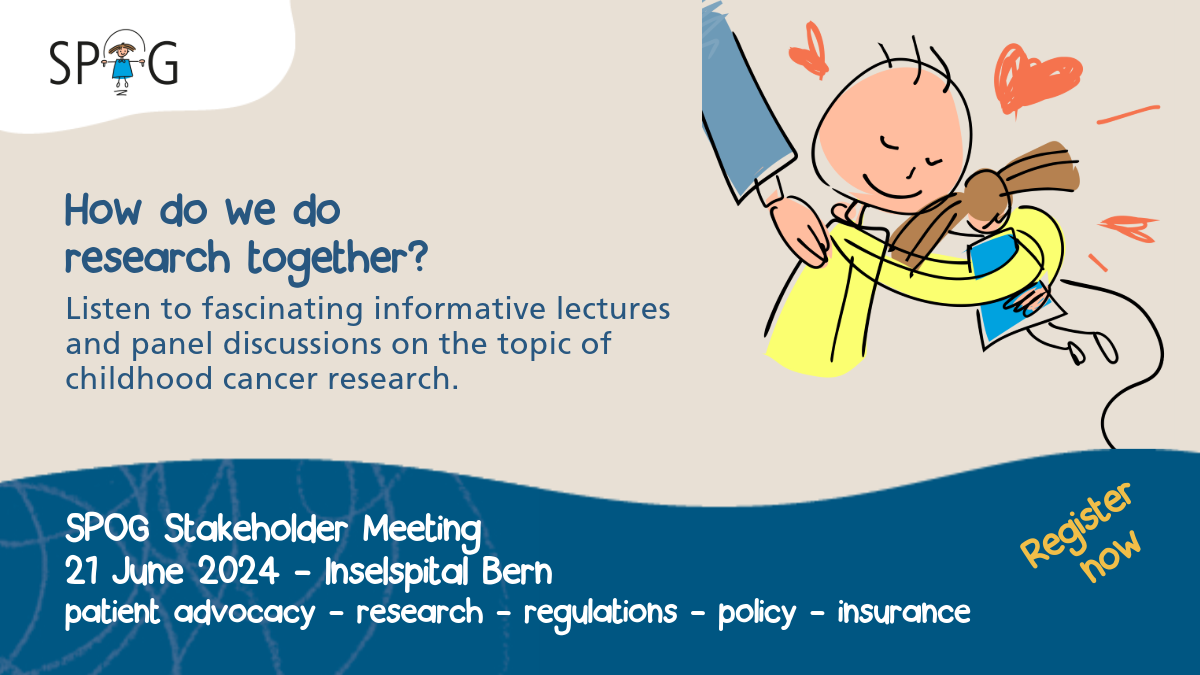Compared with adults, children fortunately develop cancer far less frequently. Yet even in Switzerland, which is a small country, one child with cancer dies nearly every week.
Because childhood cancer is so rare, there are officially very few authorised medicines available to treat these patients. Non-profit-oriented, academic clinical research into childhood cancer seeks to close this gap in medical care by working continuously to refine the best possible treatment for children with cancer.
Every year, around 350 children and adolescents develop cancer in Switzerland. Without treatment they would have little chance of surviving their illness. Today, an average of almost nine out of ten children can be successfully treated. Those affected and their families primarily have clinical research to thank for this fact.
But children are not simply small adults. They develop different types of cancer and respond differently to medicines. This means that their cancers need to be researched separately. There are numerous authorised cancer medicines and therapies for adults, but the situation is different for the youngest patients. There are very few medicines that have been officially approved for children and adolescents; they are usually given cancer medicines that are actually only authorised for adult use. Non-profit-oriented, academic clinical research into childhood cancer investigates the best possible use of these medicines to treat children and adolescents with cancer in the course of therapy optimisation studies.
This is the task to which the Swiss Paediatric Oncology Group SPOG is dedicated. The non-profit organisation, which is headquartered in Bern, has been coordinating and taking responsibility for clinical research into cancer in children and adolescents in Switzerland for more than 45 years. It enables patients in the nine paediatric oncology departments throughout Switzerland to take part in international research studies and ensures that the doctors can concentrate fully on treating their young patients.
By improving the treatment and quality of life of children and adolescents with cancer, the clinical research into childhood cancer carried out by SPOG is able to close a gap in medical care that would otherwise pose a threat to patients, thus giving hope to these young people and their families. SPOG carries out research to give a future to children with cancer.





